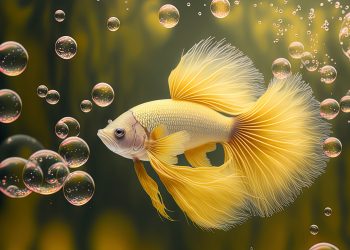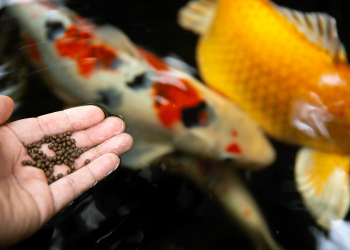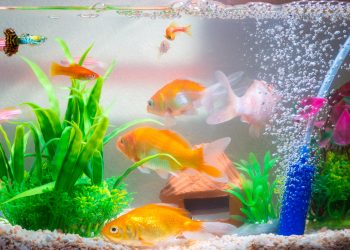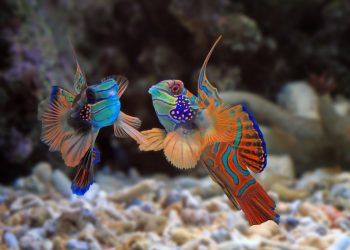Betta fish, also known as Siamese fighting fish, are popular aquarium pets known for their vibrant colors and unique personalities. Proper feeding is crucial to ensure the health and well-being of these captivating creatures. In this comprehensive guide, we will explore various aspects of feeding betta fish.
How Often to Feed Betta Fish:
Betta fish have specific feeding requirements that can vary depending on factors such as age, activity level, and water temperature. Here are some guidelines:
- Frequency: Betta fish should ideally be fed twice a day, morning and evening. This regular schedule helps meet their nutritional needs while preventing overfeeding.
- Portion Size: Offer an amount of food that your betta can consume within two minutes. Betta pellets or flakes are commonly used. Adjust the portion if there is uneaten food to maintain water quality.

Types of Betta Fish Food:
Betta fish have versatile diets, and you can choose from various food options:
- Betta Pellets: Specially formulated betta pellets are a staple in their diet. They provide essential nutrients and come in different sizes to suit your fish’s mouth.
- Betta Flakes: Betta flakes are another common option. Ensure they are of high quality to meet your fish’s nutritional needs.
- Live and Frozen Foods: Betta fish can benefit from occasional live or frozen treats such as bloodworms, daphnia, or brine shrimp. These foods add variety and simulate their natural diet.

Avoiding Overfeeding:
Overfeeding can have detrimental effects on your betta fish and the aquarium environment:
- Water Quality: Excess uneaten food can decompose and lead to poor water quality, increasing the risk of disease and stress for your fish.
- Obesity: Overfeeding can cause bettas to become overweight, which can lead to health issues. Pay attention to their body condition and adjust portions accordingly.

Signs of Hunger:
Understanding your betta fish’s hunger cues is essential:
- Active Feeding: Betta fish will actively swim towards the surface and eagerly consume food when hungry.
- Lack of Interest: If your betta ignores food or spits it out, it may be full, or the food offered may not be appealing.

Variety in Diet:
While betta pellets and flakes are the mainstay, offering a diverse diet can enhance their overall health:
- Occasional Treats: Introduce live or frozen treats to their diet a few times a week. These treats provide enrichment and mental stimulation.

Maintaining a Healthy Betta Habitat:
Feeding is just one aspect of betta fish care. Remember to:
- Monitor Water Quality: Regularly test and maintain water parameters like temperature, pH, and ammonia levels. Clean the tank and change water as needed.
- Provide Proper Tank Size: Ensure your betta has adequate space to swim and explore. A tank with a filter and heater is essential.
- Observe Behavior: Pay attention to any changes in behavior, as it can indicate health issues. Consult a veterinarian if you notice unusual symptoms.
In conclusion, proper feeding is a vital aspect of caring for your betta fish. Establish a regular feeding routine, offer a balanced diet, avoid overfeeding, and maintain a clean and stimulating environment. By following these guidelines, you can ensure your betta fish remains healthy, happy, and vibrant.

Next on your reading list:











